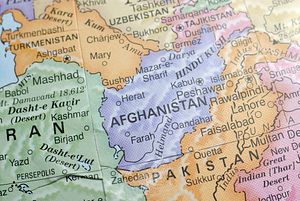Almost three months after a high-ranking member of Hizb-i-Islami (HIA) said the party was willing to drop a major precondition to peace talks–setting off a hopeful interlude of progress toward removing an admittedly minor militant player from the board–the peace negotiations have reportedly stalled.
According to Voice of America, Gulbuddin Hekmatyar’s party “has accused Afghan negotiators of unilaterally altering certain provisions in the peace deal the two sides had drafted after weeks of intense negotiations”:
The government gave in to U.S. pressure and made changes to passages in the original agreement that dealt with the future of foreign troops in Afghanistan, the group alleged through an article in its Daily Shahadat magazine.
The original draft, according to HIA, stated both sides supported the idea of “having no foreign troops” in the country and vowed to deal with the violence through national unity. But the amended draft added, “Both sides supported the presence of foreign forces in accordance with the bilateral security pacts for strengthening national solidarity in the interest of the country.”
The issue of foreign troops in Afghanistan has long been the sticking point in negotiations between Hekmatyar’s party and the government of Afghanistan. In April, Amin Karim, a party member, told the Associated Press that the “departure of foreign troops is not a condition, it is a goal.”
On that note–a change in tone from the small militant group with a massive legacy–negotiations proceeded apace. In May, I commented that Kabul was perhaps too optimistic about what settling with Hekmatyar would mean on the battlefield, but ultimately needed a win.
An anonymous source in the Afghan government told VOA that talks had been suspended recently due to changes in the language of the peace deal and additional demands from Hekmatyar, including cancelling the military agreements that allow U.S. and NATO troops to remain in the country.
But, according to TOLOnews, Iqbal Safi, another member of Hizb-e-Islami, said, “As far as I am aware, the peace talks are ongoing and there is optimism on both the sides. I am not convinced that the remarks, attributed to him, are from Hekmatyar.”
Hekmatyar is an elusive figure; most analysts believe he is hiding out in Pakistan. While his group has dwindled from its former power, many viewed the pending peace deal between Hizb-e-Islami and the government as a concrete win for Kabul and a possible way for Hekmatyar to re-enter Afghan politics. Negotiations with the Taliban–via the Quadrilateral Coordination Group (comprised of Afghanistan, Pakistan, the United States, and China)–fizzled last year, giving extra impetus to reach some kind of peace with whatever militant group would come to the table.

































